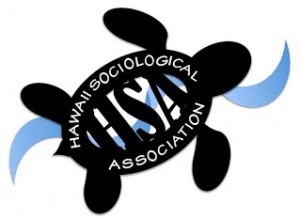Manisha Desai Addresses Annual Meeting of the Hawaii Sociological Association

On February 20, 2016 Affiliate Faculty Manisha Desai delivered the keynote address “Towards Epistemic Justice: Feminist, Subaltern, Postcolonial and Decolonial Approaches” at the University of Hawaii at Hilo Campus to open this year’s Hawaii Sociological Association Conference that will focus on subaltern sociology and social justice, islands, and movements.
Subaltern is a term associated with the postcolonial experience and refers to groups in society that have been oppressed or exploited due to gender, sexuality, race, migrant status, class, nation, ability, indigeneity, or rural/regional location. According to conference organizers, Islanders ought to be covered by the term because “island geographies are often eclipsed by mainland-centered approaches of development as well as the distinct cultural and social resistance found on them.”
Addressing the issue of “epistemic violence” that Gayatri Spivak identified in her essay “Can the Subaltern Speak”, Professor Desai’s talk discussed the various ways in which subaltern groups and scholars have tried to do so as well as illustrate these possibilities via recent articulations of alternative futures to development such as Sumak Kawsay or Beun Vivir, Ecological Swaraj, and degrowth.
According to Dr. Desai, epistemic violence for Spivak is the violence of knowledge production in the colonial encounter which renders the other silent and unable to be heard because the colonizer lacks the cognitive/interpretive resources to hear the colonized. Responding to a request for elaboration, she writes,
Feminist, subaltern, postcolonial, and decolonial theorists are among those who have sought to address this violence via new interpretive frameworks. Feminists do so via epistemologies and praxis that illuminated the standpoint of women via a gendered and later intersectional language; subaltern theorists read against colonial texts to hear the subaltern, while postcolonial theorists highlight the “intimate enemy.”
subaltern theorists read against colonial texts to hear the subaltern, while postcolonial theorists highlight the “intimate enemy”
More recently, decolonial theorists have begun to articulate a pluriversal dialogue via translation that would move us towards epistemic justice. Some of these decolonial approaches are evident in the alternatives to sustainable development being enacted by subaltern groups in the Global South and the North. For example, Sumak Kawsay begins with the understanding of human well being as the principle around which to organize an open ended society without a teleology. Ecological Swaraj similarly begins with self-reliance of the individual that enables each to participate in decision making around community based governance and economy while degrowth seeks to move public debate away from growth towards conviviality, care, and the commons.
During this spring semester, Professor of Sociology Manisha Desai, also gave two additional keynote addresses. On March 8, Eastern Michigan University hosted her for International Women’s Day as she delivered “Beyond Beijing Plus Twenty: The Changing Dynamics of the International Women’s Movement at the United Nations”. And on April 15, she addressed “Women’s Global Human Rights Activism in the era of Neoliberal Globalization” at the 32nd Annual Conference on the Advancement of Women at Texas Tech University.